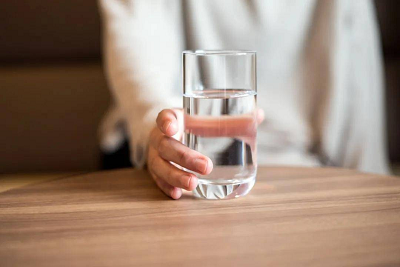Does Drinking Water Before Bedtime Affect Prostatitis Patients?
Prostatitis is a common disease in urology, ranking first among male patients under 50 years old in urology. Although the incidence rate of prostatitis is high, its etiology remains complex, including various factors, such as bacterial infections and irregular lifestyles. The main clinical manifestations are urethral irritation symptoms and chronic pelvic pain.

Drinking too little water is only one of the causes of prostate disease. Drinking water helps dilute urine and is a major priority in preventing prostate disease.
Water can dilute urine, promote excretion, prevent infections, and maintain water balance. Generally speaking, prostate patients do not have too many restrictions on drinking water during the day, and urination is beneficial for flushing the urinary tract.
However, there are indeed some restrictions on drinking water at night.
If patients drink water within two hours before bed, urine cannot be discharged after sleeping soundly. Holding urine will overfill the bladder and weaken the detrusor muscle tension of the bladder, which will lead to difficulty in urination. That will easily induce acute urinary retention.
In addition, drinking a large amount of water at night can increase the amount of urine produced, thus increasing the frequency of urination at night and affecting the patient's sleep quality, thus affecting their work and life the next day.
What should prostatitis patients care about when drinking water?
1. Besides not drinking too much water at night, prostatitis patients should be careful not to drink detoxifying tea blindly.
To attract consumers, some businessmen boast about the efficacy of tea. For example, it is said in some advertisements that drinking certain types of tea can help detoxify the prostate gland, leading patients to enter the wrong treatment area. Prostatitis patients should not blindly drink detoxifying tea and try to drink less tea and coffee to avoid stimulating the prostate and affecting the recovery of the disease.
2. After sleep, the water will be discharged following the breath and urine excretion, leaving the body dehydrated. After waking up in the morning, patients can drink a 250ml cup of soft saline water. Prolonged persistence in doing this can protect the prostate.
During busy work hours, the body may lose water at around 9:00 and 11:00. It is essential to replenish a glass of water promptly to relieve tension. Drinking a glass of water 30 minutes after lunch can promote the digestion and absorption of food.
3:00 pm is the most exhausting time for the body, and drinking a glass of water before dinner can refresh the mind. Drinking a glass of water before dinner can help digest food after meals.
Drinking 100 milliliters of water an hour before bedtime can replenish the moisture lost at night, but it should not be too much. Otherwise, it will increase the frequency of waking up at night and affect prostate recovery.
In addition to drinking water, patients can also take the following measures to regulate their daily lives and promote recovery from prostatitis:
1. Have a light diet. Eat more fresh fruits, vegetables, meat, nuts, etc. appropriately, ensure the intake of nutrients, avoid consuming a large amount of oily, cold, spicy, and stimulating foods, and drink less alcohol.
2. Avoid being sedentary. Workers who sit for a long time can get up and exercise regularly.
3. Pay attention to local warmth. When the weather is getting cold, add appropriate clothing to prevent the prostate from being stimulated by coldness, which can worsen the condition.
4. Pay attention to emotional regulation. Maintaining an optimistic attitude in daily life is recommended to avoid long-term anxiety, tension, excessive stress, etc.
5. Avoid excessive sexual activity to prevent frequent stimulation from exacerbating prostate congestion and edema. If necessary, maintain moderate and regular sexual activities.
6. Exercise appropriately to enhance physical fitness and enhance body resistance.
You may also be interested in:
How Effective are Kegel Exercises in Managing Split Urine Stream Caused by Prostatitis?
Beyond Pain and Discomfort: How Chronic Prostatitis Can Impact Your Fertility Through Sperm Liquefaction Time
Is Increased Prostatic Fluid Related to Prostatitis?



